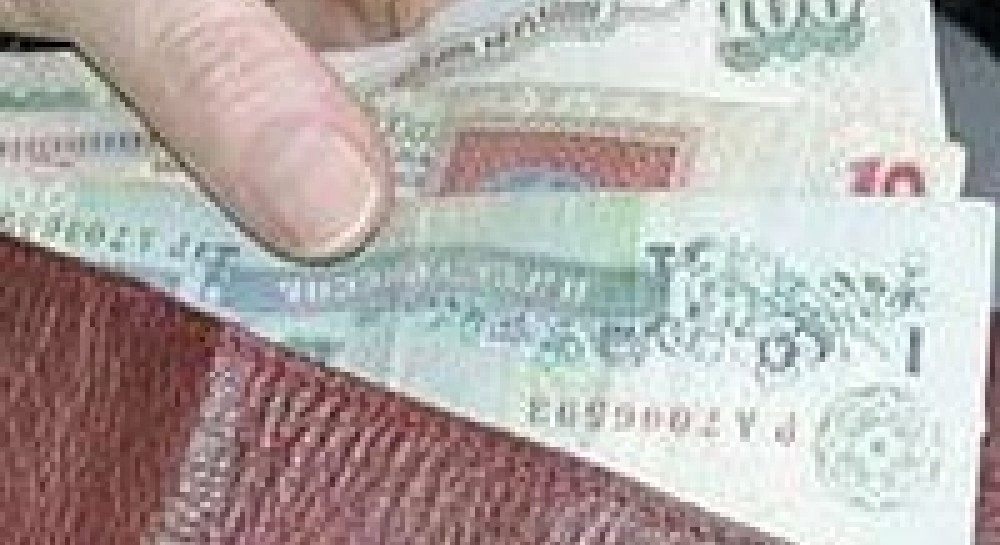
Ukraine politics strain economic performance
The political strain has taken its toll the local currency. The deputy governor of the National Bank of Ukraine Sunday said that defending the hryvnia`s peg against the dollar at UAH5.02 had cost $1.7 billion in the last quarter.
The Ukrainian economy minister`s speech began with a rough inflation projection and notice of his departure from the country`s messy political scene.
In his address to a packed hall at the European Bank for Reconstruction and Development`s annual meeting, Arseniy Yatsenyuk typified the bewildering state of Ukraine`s political climate.
Yatsenyuk told his audience of foreign investors that he had just discovered that he would probably not be joining the new government, and was therefore not in a good position to outline its likely plans. "I`ve just found out," he said. "I`m not sure I can tell you the truth about the future of this government."
He then went on to list the "internal challenges" faced by Ukraine`s new government which, two months after national elections, still hasn`t been decided.
A revival of the tattered Orange Revolution team looks barely more likely than a coalition between the parties of President Viktor Yushchenko and the opposition led by Viktor Yanukovich.
The political strain has taken its toll the local currency. The deputy governor of the National Bank of Ukraine Sunday said that defending the hryvnia`s peg against the dollar at UAH5.02 had cost $1.7 billion in the last quarter.
Analysts at the Institute of International Finance predict a "sizable hryvnia correction" later this year, "due to a growing current account shortfall and heavy outflows of residential capital."
They say a drop in demand for steel and sharp increase in the cost of natural gas from Russia whittled Ukraine`s current account surplus from 10.5% of gross domestic product in 2004 to 3% last year, and estimate this was transformed into a deficit of 5% in the three months to March.
But NBU deputy Governor Oleksandr Savchenko said foreign direct investment inflows, around $824 million in the first quarter, are helping support the local currency.
"There are some factors that push the hyrvnia to depreciate, but there are more fundamental factors that bring it to appreciate," Savchenko said.
Big-ticket privatisations - including the $5 billion resale last year of the country`s biggest steel mill, Krivorizhstal, to steel giant Mittal - have also boosted the country`s coffers.
Savchenko also reiterated the bank`s intention to cut the dollar`s share in its currency reserves from 40% now and raise the euro`s share from 30% while also increasing the shares of other currencies.
He also said the bank planned to reduce intervention in the foreign exchange market over the next year, moving closer to inflation targeting as its central remit. The NBU expects the inflation rate to stand at 10% this year.
"We`re going to make the exchange rate more flexible, we`re going to leave the forex market and intervene only in exceptional cases," the deputy said.
The deputy governor pointed out that international investment banks widely regarded the hryvnia as one of the most undervalued currencies in the world. He said the central bank was looking to adjust its hyrvnia peg to UAH5 against the dollar, within a flexible 3%-4% trading band.
In the meantime, Savchenko said the country needed a deeper government bond market. "We need to develop our markets - we have a shortage of state securities," he said.
But that will be difficult to achieve for the time being, as political uncertainties continue to exert unwelcome pressure on yields. The cost of borrowing on international markets is still rising.
In his address, Finance Ministry official Vitaly Lisovenko praised the record-low 4.95% interest rate Ukraine secured on last year`s 10-year euro-denominated bond. "It looks like this record won`t be repeated for another few years, unfortunately," he said.
The article was monitored by The Action Ukraine Report (AUR) Monitoring Service, Morgan Williams, Editor .
by Emily Barrett, Dow Jones Newswires, London, UK

